West Hartford Board of Education: High School Nicknames Will Be Changed

Audio By Carbonatix
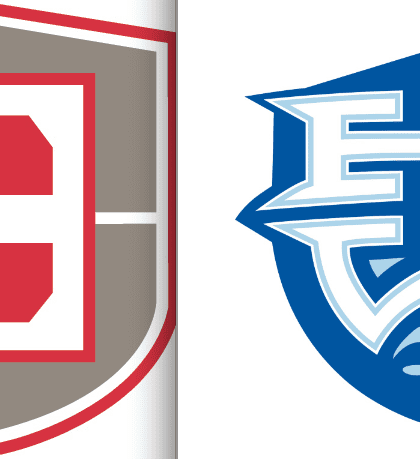
The West Hartford Board of Education voted Tuesday night to drop both the Chieftain and Warrior nicknames from Conard and Hall high schools.
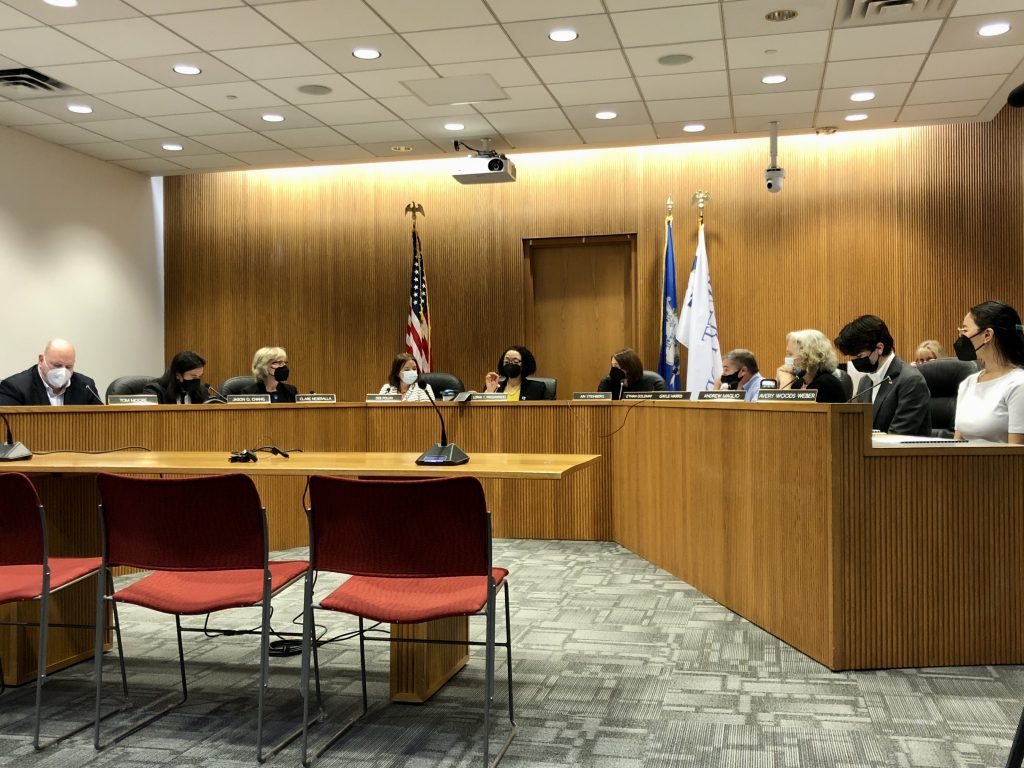
West Hartford Board of Education at Feb. 1, 2022 meeting where a vote was taken to change the Conard and Hall high school nicknames. Photo credit: Ronni Newton
By Ronni Newton
Conard High School will no longer be known as the Chieftains, and Hall High School will no longer be known as the Warriors after the current academic year, following a vote by the West Hartford Board of Education Tuesday night to change both names.
Each school nickname was considered separately, and the vote was 5-2 along party lines to change the Chieftain name. Board Chair Lorna Thomas-Farquharson and Vice Chair Deb Polun, both Democrats, along with Democrats Jason Chang, Ari Steinberg, and Clare Taylor Neseralla voted for a change, while Republicans Gayle Harris and Ethan Goldman voted to keep the Chieftain name.
Polun, along with the two Republicans, voted against changing Hall’s Warrior nickname, but the other Democrats voted for a change, which passed 4-3.
The West Hartford Board of Education’s vote Tuesday night was, according to Thomas-Farquharson, a continuation of the process that began in 2015, when the Board decided, with a unanimous vote that followed an extensive public outreach process, to maintain the Conard and Hall nicknames but remove all Native American imagery.
Since then, the Board of Education has adopted an educational equity policy. Thomas-Farquharson said the school nicknames are offensive to the Native American population, and have been condemned by Native American tribes and organizations. While input the Board received from the tribes have not necessarily specifically addressed Conard and Hall, “they clearly acknowledge the offense of the terms,” she said, and are not honored by their use.
“We currently have an educational equity policy … that is what we do know, and with that policy it is incongruent continuing the mascot names,” she said. Quoting Dr. Martin Luther King Jr., she said, “There comes a time when one must take a position that is neither safe, nor politic, nor popular, but he must take it because conscience tells him it is right.”
Discussions about changing school nicknames have been emotionally charged in some Connecticut communities, and a Board meeting in Glastonbury had to be suspended when a resident and Board member engaged in a physical altercation. But while the speakers at Tuesday night’s meeting in West Hartford were passionate during the more than two hour discussion, they largely respected the process.
Board policy allows for each speaker to have three minutes of testimony, for a maximum of 21 minutes per topic. Changing the nicknames and keeping them were treated as two separate topics Tuesday night, and seven speakers in support of each view spoke.
“First, I ask that you delay the vote on the high school team names, until the entire community has an opportunity to weigh in and participate in what should be a thorough and transparent process,” said resident Scott Zweig, an attorney who has previously addressed the Board on the topic, and also penned an Op-Ed published last week on We-Ha.com. “Second, if you do proceed with the vote tonight, I ask that you vote no on motion No. 2 which seeks to discontinue the use of the ‘Warrior’ name for Hall High School. The name should stay,” he said.
Zweig stated that the Board “has not adequately or actively sought input from the community on this important issue,” unlike the process in 2014 and 2015, when there was a community forum and surveys. “To put it simply: you haven’t done your homework,” he said, and the process is being rushed for no reason.
“I wholeheartedly support changing the names of Conard and Hall mascots,” said Tracey Wilson, a retired Conard High School social studies and history teacher who is also the town historian. “The love of the Chieftain was never universal,” she said, adding that the use of these names troubled her ever since she began teaching and coaching, and she would never wear clothing with the Chieftain name or the former image. The Native American tribes, she said, find the the use of the names “abhorrent.”
“There is always a conflict between those who want nothing to change and those who do not wish to see everything remain the same,” said resident John Killian, who graduated from Conard in 1984. “These mascots are layers above a rotten core. If we are not careful, and we don’t tear down these walls, the worms will eat into our brains.”
Resident India Liddell testified in favor of keeping the current nicknames, noting that the schools have many more important matters on which to focus right now, and she also decried the process as not taking into account public opinion and not adopting a true process to solicit a range of viewpoints.
“We already know where the board stands on the issue and how you plan to vote … you will do what you want without any consideration because you have the power to do so,” she said. “History is not there for you to like or dislike, it is there to learn from,” she said, asking the Board to at least delay the vote, and undergo a thorough process.
Student representative Avery Woods Weber of Hall and Andrew Maglio of Conard did poll their school communities over the last week or two, and reported those results to the Board Tuesday. Woods Weber said 505 students from Hall responded, with roughly 62% in favor of keeping the Warrior name and 32% favoring a change.
Conard did not have as many students respond, but the percentages were similar, Maglio said, and in 2014-2015 a survey of students also had similar results.
Both student representatives shared some comments they had received. Maglio said that one Conard student, who has Native American heritage, feels uncomfortable “every day that I walk into Conard with the word ‘Chieftain’ plastered over my head.”
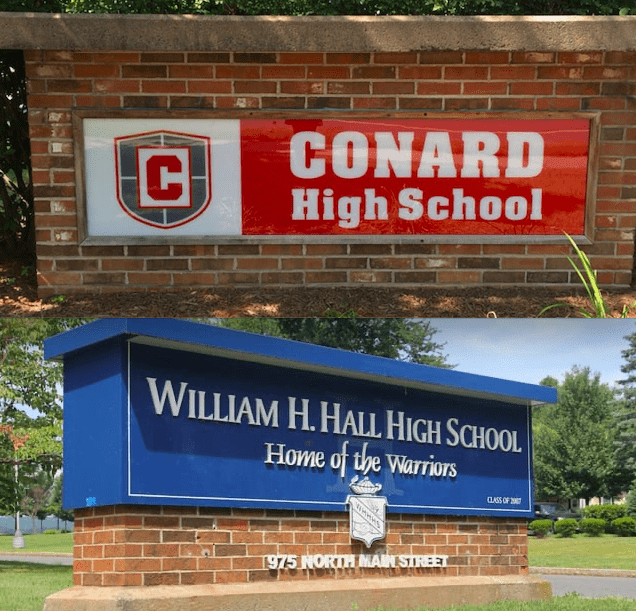
Current Conard High School and Hall High School signs. (we-ha.com file photos)
Approximately 120 letters were emailed to the Board of Education, with roughly two-thirds advocating for keeping the current nicknames. They were from students – including a large contingent from Conard’s football team – teachers, coaches, alumni, and parents. More than 20 of the letters questioned the Board’s process, the lack of public forum and the rush to a vote.
Brian Wilson, who was Conard’s student council co-president in 2014-2015 when the decision was made to eliminate all imagery but keep the nicknames, is now in law school. He noted that Conard students took the topic so seriously that students even created a play, “The Chieftain Project,” which chronicled the discussion.
In a four-page letter, he said he questioned why the Board chose to revisit the topic, since “appropriate democratic leadership and a clear and concise due process” were followed when the decision was made seven years ago. What’s needed, he said, is more education about the decision made 2015 and about Native American history and culture in the curriculum.
“Changing these nicknames will not dismantle any elements of systemic racism and historical inequities. Rather, it will be perceived by many as pandering and virtue signaling. Native Americans still face actual injustice and inequalities and the belief that changing the nicknames chieftain and warrior somehow will ‘clear the path for traditionally marginalized groups’ is not a convincing argument,” Wilson wrote.
When the Board was ready to vote, Goldman proposed a delay in the process, initially until the first meeting in June and then. When Polun said she would support a delay until March 1, he amended his motion to delay the vote until that date to allow for a pubic forum and time for analysis of the cost of a change, including new uniforms, signage, letterhead, gym floors, etc. The motion failed 4-3.
Chang said the town is at a crossroads, “where we have an opportunity to build a new chapter.”
He noted that while many have focused on the definition of the nickname terms chieftain and warrior, not surprising in the hometown of Noah Webster, there is a difference between definition and impact. “In 2015 the Board hoped to disentangle our schools from this colonial culture in hopes that removing the imagery would separate us from the problem of racial stereotypes. But the words we have kept, and the historic baggage forever attached to those words, continue to haunt us.”
It’s important to learn from the past, in order to recognize the harm being done in the present. Working together as a community, he said, will help students “learn with open hearts and build a meaningful collective identity based on mutual respect and dignity.”
Goldman said he appreciated hearing the different points of view from those who wrote and spoke to the Board, but would have liked to have more time. He’s also concerned with taking up resources while we are still dealing with COVID-19.
“I understand that there are Native American team names that could be and were considered offensive, such as the Washington Redskins or Cleveland Indians especially when combined with the Native American imagery of both of those teams. However, that is not the situation with West Hartford team names,” Goldman said, neither of which is unique to Native American history.
“We are making decisions for an academic organization, and the assumptions behind that decision should be fact- and academically-based … not based on what happened 7 years ago,” he said. “If we are going to make change, the reasons for the change should be visible and clear.”
Harris graduated from Hall, and said the name was part of her “heritage, culture, and high school experience,” which was also mentioned by many alumni and should be taken into account. “If you change these names you erase a part of our culture and heritage in this town.”
There was a vigorous debate six years ago, and at that time a compromise was reached, and the unity of the community is important, Harris said. “We are basically going back on our word .. and we are going to be doing it again and again until we get what we want.” The Board wanted student input, she said, and according to both student reps, 62% do not want a change.
Neseralla said she read hundreds of letters and articles, and listened to both perspectives with an open mind. “We can all agree that the two names have meanings outside of the original meaning, but we know what kind of warrior and chieftain our teams were named after. According to our students, Native American references remain seven years after the logo change.”
The students will still aspire to represent the schools and cheer on athletes with different names. “A mascot change would allow future generations to rally for a name everyone can embrace and symbols more inspiring than the Conard C and Hall HW,” she said. “I believe our kids deserve a team name that positively reflects our West Hartford values and allows for creativity and fun,” which don’t divide the community or make anyone uncomfortable.
Polun said the Board was “partially nudged to bring this up because of state legislation from last June,” but also, perhaps more importantly, from the Board’s own equity policy where they “make a solemn promise to identify and dismantle elements of systemic racism and historical inequities.”
Do the names without the imagery further the mission and goal toward equity for all, she said, or do they hurt any group or groups of people. After consideration, and after reading the letters from the tribes as well as from students and community members, Polun said the choice is not completely obvious.
“But I think one of the barriers we have right now is while we know what we do ‘not’ mean by Chieftain and Warrior, we haven’t put a picture on what we ‘do’ mean.” She said while she is convinced that Warrior has many meanings not tied to Native Americans she was not convinced that was the case with Chieftain.
Polun’s vote – to change the Chieftain but keep the Warrior – reflected that belief.
Steinberg said she believes it’s important to align with the Board’s newly-adopted equity policy, and highlighted the section committing to a “solemn promise to identify and dismantle all elements of systemic racism. We vow to clear paths, with a relentless duty to those in traditionally marginalized groups.”
“Keeping the current team names will continue to perpetuate the racism and abuse that our equity policy was designed to eliminate,” she said.
It’s not about the definition of the terms. but about the impact on Native American people, she said, and that’s what they are telling us. A Conard student should not feel uncomfortable going into school every day because of the word “Chieftain,” Steinberg said. Regardless of the percentage of people who think the names are not harmful, they perpetuate that connection.
Those who don’t feel comfortable with the names have given reasons why. Steinberg said she thinks it will be “better to get behind team names that everyone can support and be proud of.”
Both Conard and Hall will begin the process of determining new names, with a goal of completing the process by June 7, 2022, and replacing the “non-conforming names” by the beginning of the 2022-2023 school year. The task will be completed by a committee at each school, appointed by the principal along with the assistant superintendent, and including administrators, teachers, other staff, students, parents, and others in the school community.
The recent proposal for changing the nicknames appeared as an agenda item for the Board of Education’s Dec. 7, 2021 meeting, prompted in part by the passage of legislation which could impact the town’s budget.
Public Act 21-2, passed by the state legislature in special session during June 2021, includes the following provision: “For the fiscal year ending June 30, 2023, and each fiscal year thereafter, no municipality shall be paid a grant from the Mashantucket Pequot and Mohegan Fund established pursuant to section 3-55i, if a school under the jurisdiction of the board of education for such municipality, or an intramural or interscholastic athletic team associated with such school, uses any name, symbol or image that depicts, refers to or is associated with a state or federally recognized Native American tribe or a Native American individual, custom or tradition, as a mascot, nickname, logo or team name.”
In the current fiscal year, West Hartford received $27,820 in grants. PA 21-2 did not include a list of specific names that would result a loss of funding, and State Sen. Cathy Osten of Sprague, who is co-chair of the Appropriations Committee and whose district includes the Mashantucket Pequot and Mohegan reservations, told We-Ha.com during a phone interview in January that the tribes did not want to be stereotyped but also “did not want to be too prescriptive.” The decision about whether or not to withhold the funds, she said, would be up to the Office of Policy Management, which did not respond to multiple requests by We-Ha.com to provide a list, but last week did send municipalities a form to be completed, certifying asking whether or not the town has schools or teams that utilize Native American names, symbols, or images, and if they do, whether it is with consent of a state or federally recognized tribe.
At the Board’s Dec. 7 meeting, Assistant Superintendent of Administration Andy Morrow said it’s incumbent upon the Board to review its policies again, in light of the state legislation as well as their own “Equity and Anti-Racism Vision,” adopted in 2020, which in part states: “We make a solemn promise to identify and dismantle all elements of systemic racism and historical inequities. We vow to clear paths, with a relentless duty to those in traditionally marginalized groups. We pledge to partner with ALL families in the service of the success of each child.”
After some debate in December about voting on a name change at the Jan. 18, 2022 meeting, the Board agreed to vote on Feb. 1.
Conard’s current logo does not mention the Chieftain, while Hall’s, in some versions, does include the “Warriors” name.
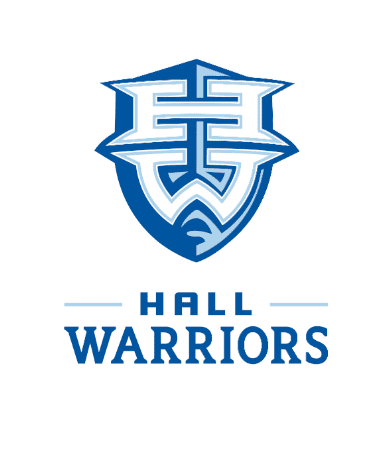
Like what you see here? Click here to subscribe to We-Ha’s newsletter so you’ll always be in the know about what’s happening in West Hartford! Click the blue button below to become a supporter of We-Ha.com and our efforts to continue producing quality journalism.


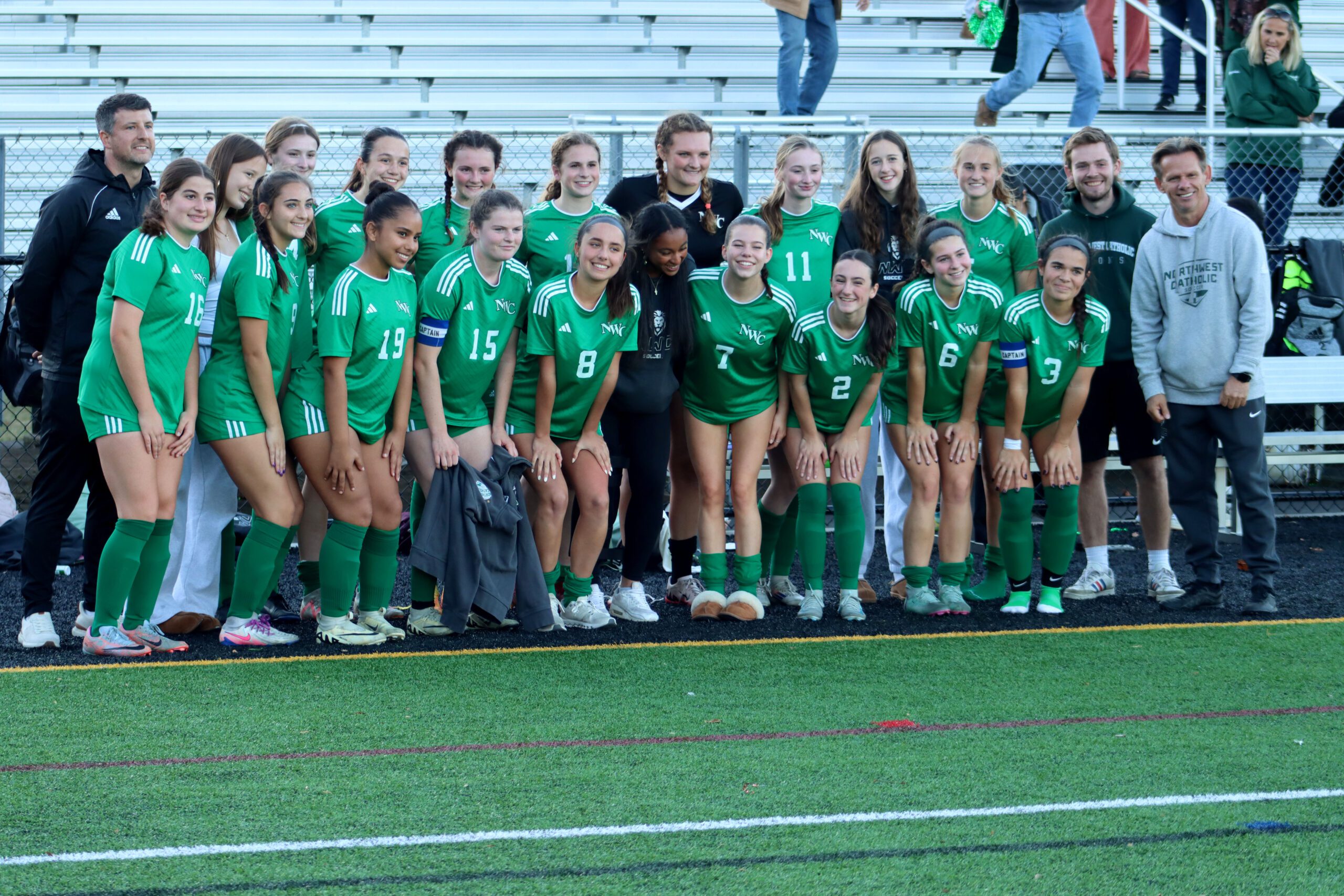
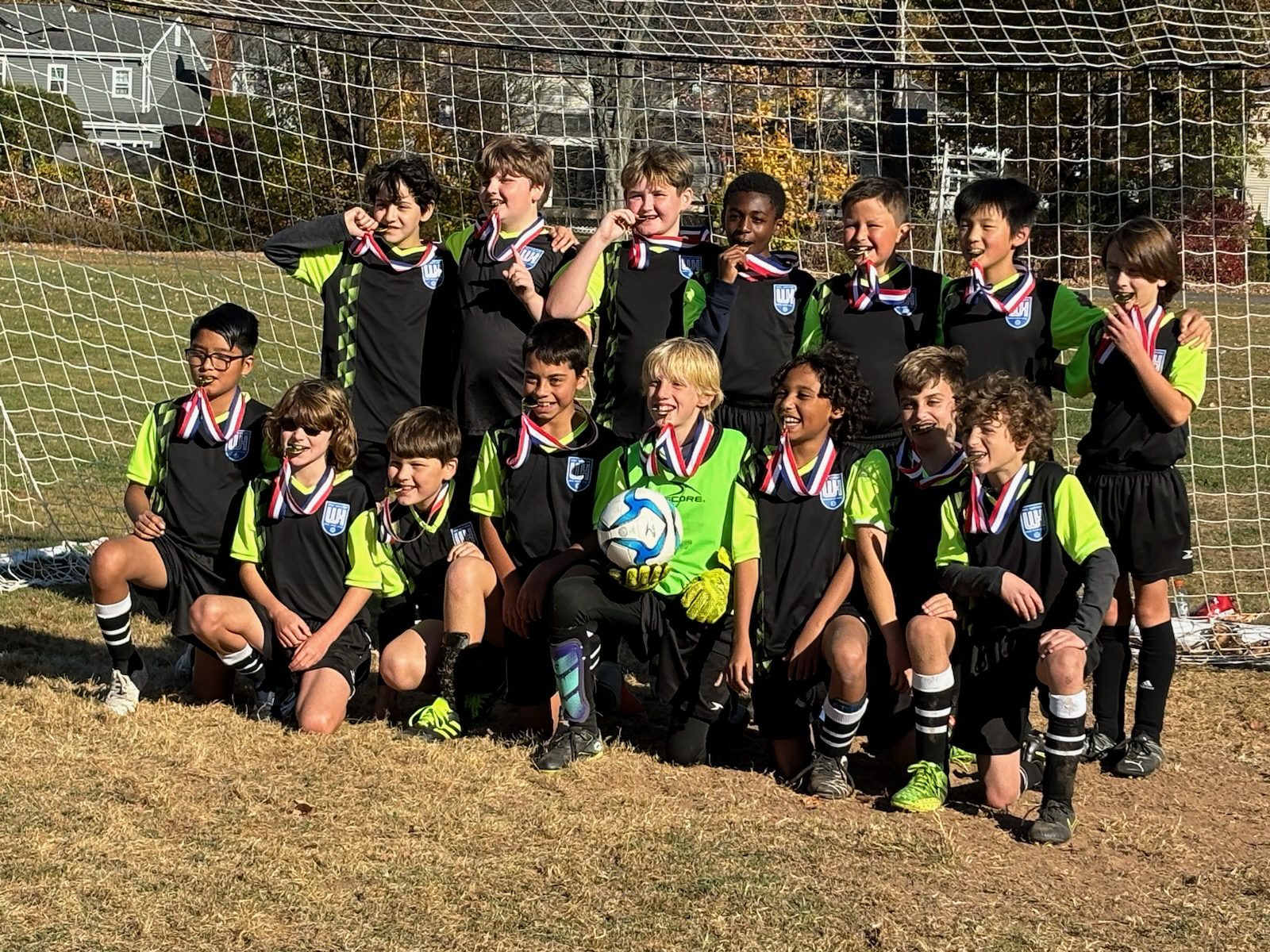
To the Chieftains, as Homer Simpson would chant walking into the Indian (oops Native American) casino “Hi, how are ya? Hi, how are ya?”
The sports team named the Vikings offends me and my Viking ancestors, but since we are White Europeans, nobody cares.